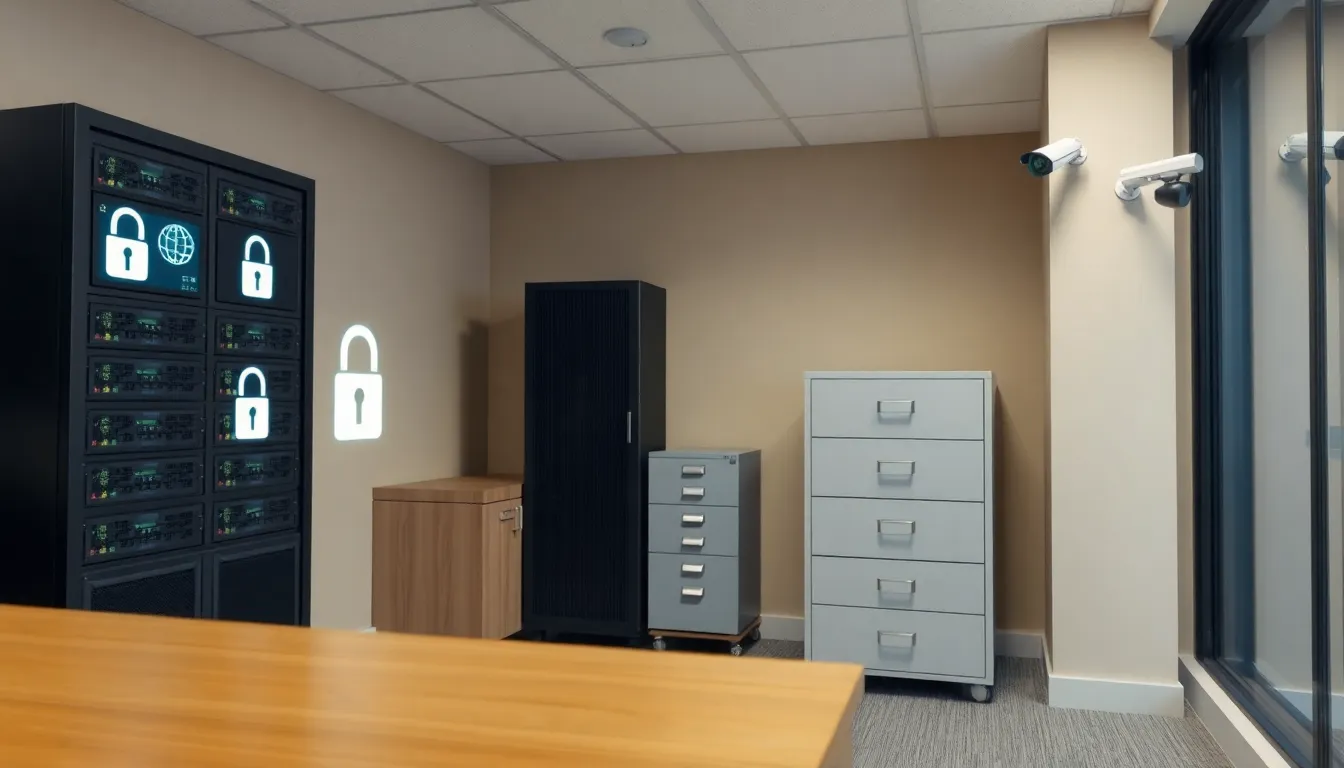Property tax records are essential documents that provide valuable information about real estate ownership and tax obligations. In an age where data breaches and identity theft are rampant, securing these records has never been more critical. Individuals and municipalities alike must prioritize the protection of sensitive information to prevent unauthorized access and potential fraud.
Understanding how to secure property tax records is crucial for property owners and local governments. By implementing best practices and leveraging technology, they can safeguard their data against threats. This article delves into effective strategies for ensuring the confidentiality and integrity of property tax records, empowering readers to take proactive measures in protecting their assets.
Table of Contents
ToggleImportance Of Secure Property Tax Records
Secure property tax records play a crucial role in maintaining the integrity of real estate ownership and financial responsibility. Implementing robust security measures protects sensitive information and mitigates legal risks.
Protecting Sensitive Information
Protecting sensitive property tax records is vital for homeowners and local governments. Identity theft and data breaches can lead to unauthorized access, resulting in financial and legal consequences. Employing encryption methods, implementing access controls, and regularly updating security protocols safeguard these records. Utilizing secure online platforms for record access and storage enhances confidentiality. Training personnel on best practices for handling sensitive information reinforces security efforts.
Legal Implications
Legal implications of unsecured property tax records can be significant. Property tax records often contain personal data, such as Social Security numbers and financial details. Disclosing this information can result in identity theft lawsuits, regulatory penalties, or loss of public trust. Ensuring compliance with privacy laws, such as the General Data Protection Regulation (GDPR) and state-specific regulations, is essential for local governments and property owners. By maintaining secure records, entities reduce liability and foster a trustworthy environment for property transactions.
Methods To Secure Property Tax Records

Securing property tax records involves employing both digital security measures and physical security practices to protect sensitive information effectively.
Digital Security Measures
Utilizing strong encryption safeguards digital property tax records from unauthorized access. Implementing multi-factor authentication enhances security by requiring additional verification beyond a password. Regular software updates ensure that security systems are equipped with the latest protection against vulnerabilities. Secure online portals for accessing records help prevent unauthorized data breaches. Employing secure backup solutions minimizes the risk of data loss from unexpected events. Training staff on cybersecurity best practices cultivates awareness of potential threats like phishing and malware.
Physical Security Practices
Establishing secure storage for physical copies of property tax records mitigates risks associated with unauthorized access. Installing surveillance cameras serves as a deterrent and provides accountability. Restricting access to authorized personnel ensures that sensitive records remain confidential. Utilizing locked filing cabinets protects against accidental exposure or theft of physical documents. Regular audits of physical security measures help identify potential weaknesses in the safeguarding of property tax records. Clearly defining procedures for disposing of outdated records minimizes the risk of identity theft.
Role Of Technology In Securing Records
Technology enhances the protection of property tax records and mitigates risks associated with data breaches and identity theft. Effective utilization of modern tools and techniques plays a crucial role in maintaining the integrity and confidentiality of these vital documents.
Encryption Techniques
Encryption techniques safeguard sensitive data by converting it into unreadable code. These methods ensure that only authorized users can access the information. Commonly used encryption standards include Advanced Encryption Standard (AES) and RSA encryption, which provide robust protection for both stored and transmitted data. Organizations should implement encryption for databases containing property tax records, ensuring that even if data is intercepted, it remains secure and inaccessible to unauthorized individuals.
Blockchain Applications
Blockchain technology offers innovative solutions for securing property tax records. This decentralized ledger system provides transparency, traceability, and data integrity through its immutable nature. Property transactions recorded on a blockchain cannot be altered without consensus, significantly reducing the risk of fraud. Moreover, smart contracts on blockchain platforms automate verification processes, ensuring that records are only accessible to verified parties. Implementing blockchain for property tax records enhances trust and reliability within the real estate market.
Challenges In Securing Property Tax Records
Securing property tax records involves navigating various challenges. Organizations face multiple vulnerabilities within existing systems and potential threats that require constant vigilance.
Vulnerabilities In Existing Systems
Many existing systems lack robust security measures, exposing property tax records to risks. Outdated software may contain unpatched security flaws. Insufficient access controls can allow unauthorized users to gain entry. Poorly implemented data encryption fails to protect sensitive information effectively. Additionally, lack of employee training in cybersecurity increases susceptibility to human error and phishing attacks. Regular audits can identify these vulnerabilities, enabling organizations to strengthen their security frameworks.
Potential Threats
Threats to property tax records come from various sources. Cybercriminals exploit weak passwords and the absence of multi-factor authentication to gain access to systems. Ransomware attacks can lock organizations out of their own records, demanding payment for access. Insider threats pose risks as disgruntled employees may leak sensitive data. Public networks can expose data transmissions, increasing the likelihood of interception. Continuous monitoring of systems and immediate response protocols ensure organizations stay ahead of these potential threats.
Best Practices For Property Tax Authorities
Property tax authorities must implement best practices to safeguard sensitive records. Adopting effective strategies ensures compliance with data protection regulations and strengthens the security of property tax records.
Regular Audits And Assessments
Conducting regular audits and assessments identifies vulnerabilities and enhances security protocols. Audits should review access controls, encryption methods, and overall security measures. Assessing the effectiveness of current practices enables timely updates to counter emerging threats. Documenting findings informs stakeholders and aids in establishing a comprehensive security strategy. Engaging third-party experts for independent evaluations adds a layer of objectivity.
Employee Training And Awareness
Investing in employee training raises awareness about cybersecurity threats and best practices. Regular workshops on phishing, secure handling of sensitive information, and password management create a knowledgeable workforce. Simulated attacks can test employee preparedness and improve response strategies. Fostering a culture of security encourages proactive behavior in recognizing and reporting suspicious activities. Continuous education keeps staff informed about the latest cybersecurity trends and technologies.
Securing property tax records is essential for protecting sensitive information and maintaining trust in real estate transactions. By adopting robust security measures and leveraging technology, property owners and local governments can significantly reduce the risks associated with data breaches and identity theft.
Proactive steps such as using encryption, implementing access controls, and conducting regular audits are vital for safeguarding these critical documents. With the right strategies in place, individuals and organizations can ensure the confidentiality and integrity of property tax records, ultimately fostering a secure environment for property ownership and financial responsibility.



